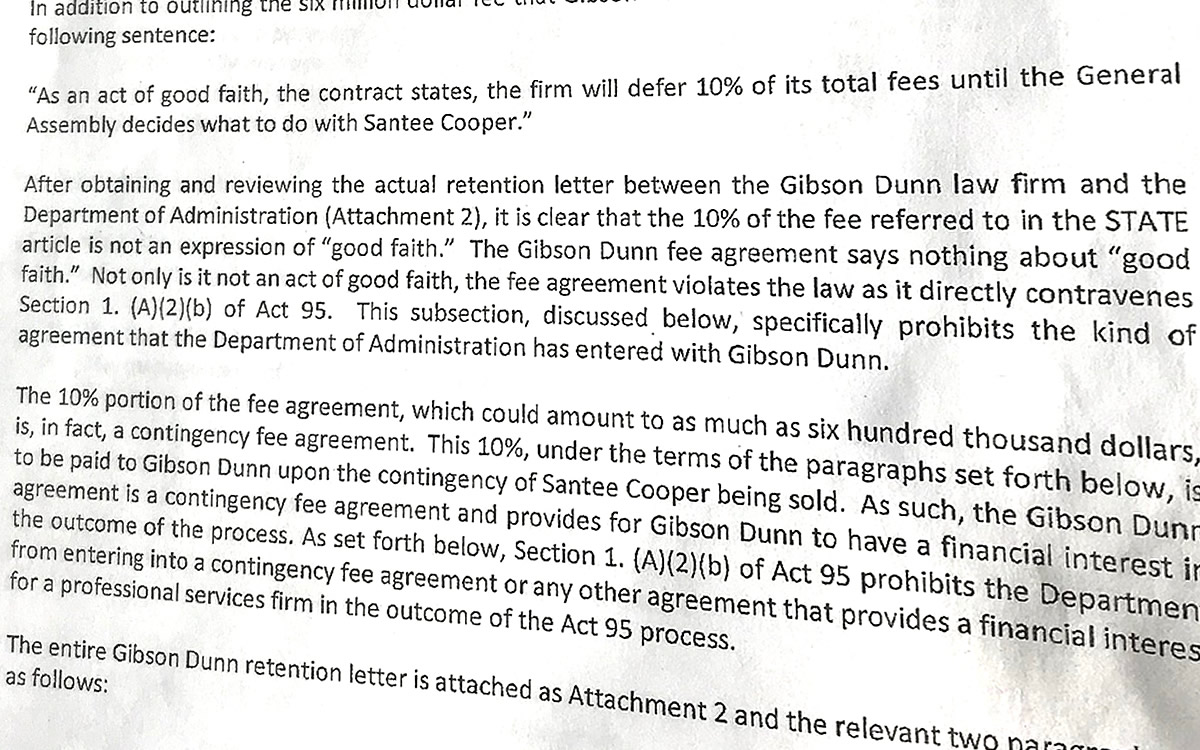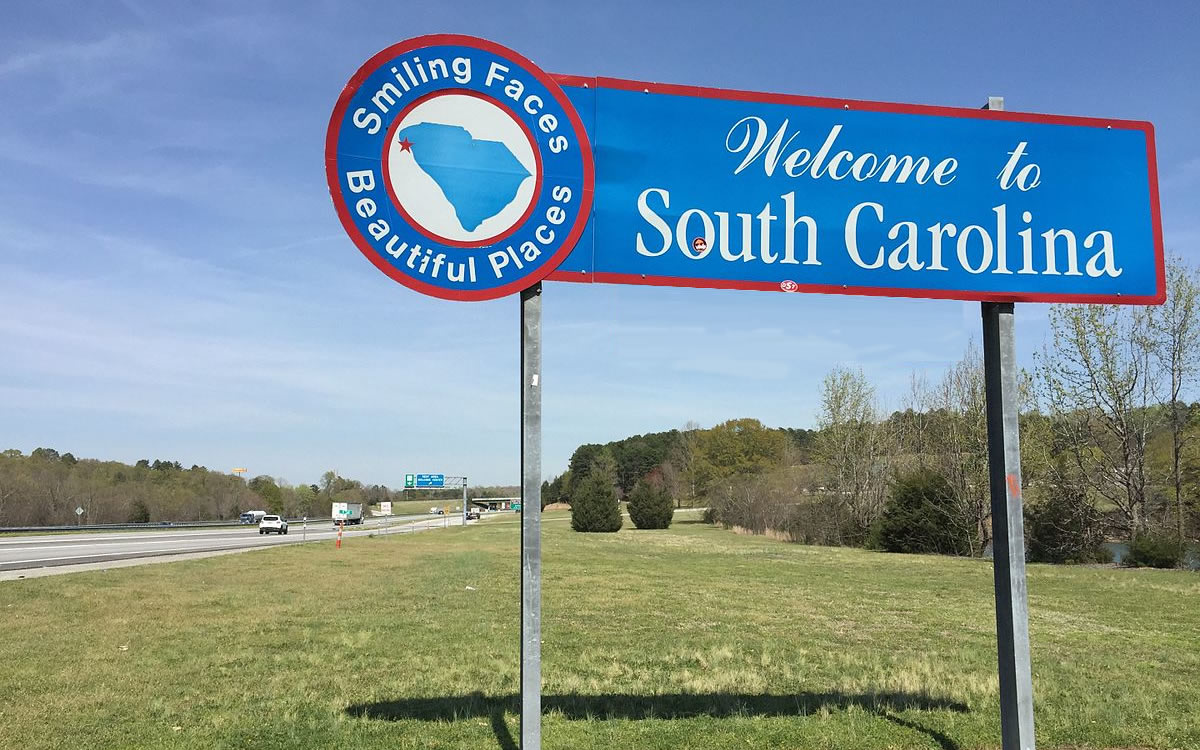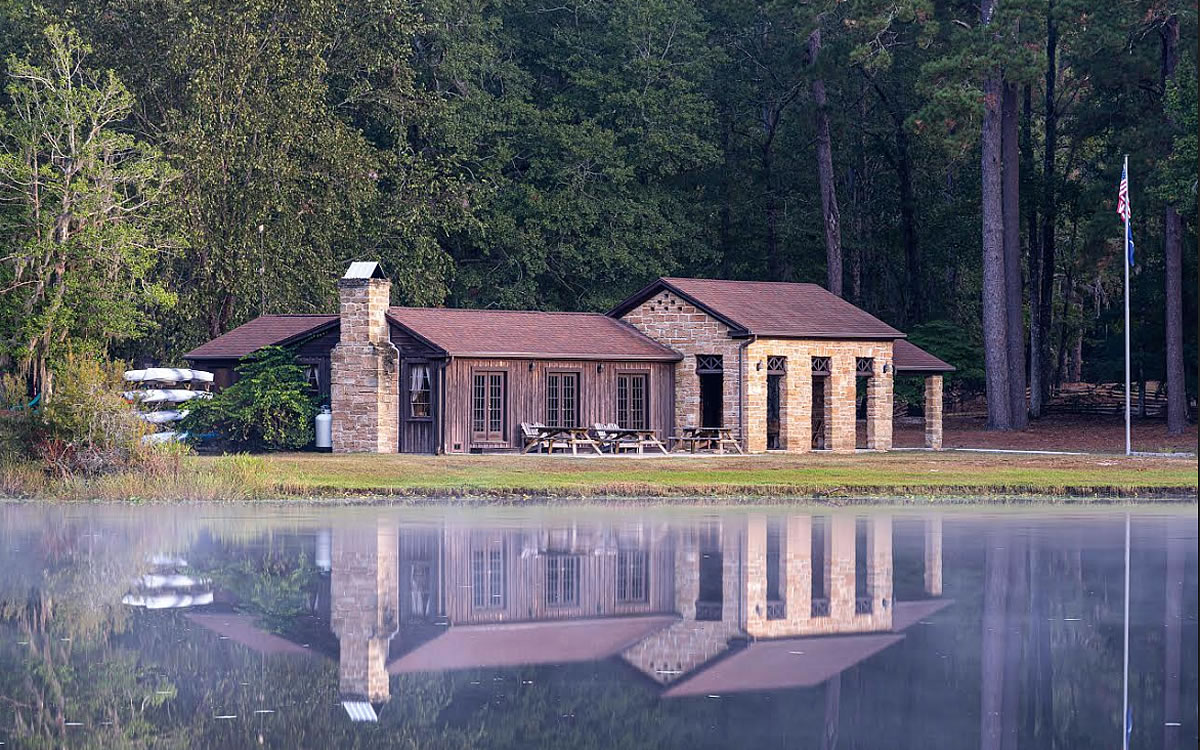INSIDE ISSUE 19.07 | Feb. 14, 2020
 BIG STORY: S.C. set to see largest surplus in history
BIG STORY: S.C. set to see largest surplus in history
NEWS BRIEFS: Senator alleges ‘tainted’ process with Santee Cooper report
COMMENTARY, Brack: Welcome to South Carolina
SPOTLIGHT: WREN
FEEDBACK: Teachers need more
MYSTERY PHOTO: Tranquil setting
S.C. set to see largest surplus in history

UPDATED with correction, 2/15/20
By Lindsay Street, Statehouse correspondent | The state expects to see its largest surplus in history as revenue projections from last year are off by more than 15 6 percent, or about $567 million more than originally forecasted.
While the excess money is rooted in missing the mark on revenue forecasts — something that caused the state to have mid-year cuts at the start of the Great Recession — some lawmakers say they aren’t worried and even expect at least one more surplus adjustment before the end of the fiscal year in June.

“This is the best look forward you can get,” Bonneau Republican Sen. Larry Grooms said of the quarterly projections. Grooms is a member of the Senate Finance Committee. “When the economy is going good, they missed the revenue estimate because it’s going really quickly.”
Columbia Democratic Rep. Todd Rutherford, a member of the House Ways and Means Committee, said surpluses show a conservative estimation that bodes well for state finances.
“I don’t think their goal is to be dead-on accurate; I think they would rather be under,” Rutherford said. “One of the things that South Carolina does right, amazingly enough at least, is the budget. Now priorities in the budget? I would make them different, but in terms of only spending what we have, I wouldn’t have it any other way.”
- South Carolina’s revenues have grown, on average, by $407 million for the last 11 years. Read more.
On Thursday, the S.C. Board of Economic Advisers said the state can expect an additional $60 million in state revenues on top of the already projected $507 million surplus for the 2019-2020 budget year. The board’s revenue guesses are made more than a year in advance, directing legislative budget writers as they craft state spending.
According to the board’s parent agency Revenue and Fiscal Affairs, the bulk of the projected $567 million surplus results from a continuation of the growth that created a $350 million surplus in 2018-2019.
If that makes your head spin, think of it this way: Grandma sends you money every year for your birthday. Most years, she sends $10. But last year, she slipped in an extra $5. This year, she sent an additional $5 on top of sending $15 again. So you could say you got a $10 surplus this year, which “includes” last year’s surplus. And, of course, you still have the extra $5 from the previous year.
Revenues for 2019-2020 were originally projected at $9,309,931,430. $3,294,414,000 Meaning that so far, the projection has missed its mark by more than 15 6 percent. To put that in perspective, state revenues shrank by 12.5 percent from the 2007-2008 budget to the 2008-2009 budget, which alarmed many as the Great Recession began taking its toll.
In response to the growing surplus, the BEA also increased its revenue estimate for 2020-2021 by $25 million, which means lawmakers now will see about $840 million in recurring funds and more than $1 billion in non-recurring funding. The previous estimate already created a buzz at the start of session, with many — including the governor — identifying teacher pay raises as a top priority, costing as much as $240 million.
The House will base its budget on this revenue estimate. The Ways and Means committee seeks to print the budget before Feb. 27 prior to House floor debate in mid-March.
EDITOR’S NOTE: A previous version of this article stated that the surplus had grown to more than 15 percent over the projected revenues. That percentage was based on only part of the total revenues projected, specifically the sales tax revenues that were forecasted at $3,294,414,000. The real estimated total of revenues was $9,309,931,430.
- Have a comment? Send to: feedback@statehousereport.com
Senator alleges ‘tainted’ process with Santee Cooper report

By Lindsay Street, Statehouse correspondent | S.C. Senate Judiciary Chair Luke Rankin, R-Conway, announced the creation of a committee Wednesday to evaluate a law firm hired by the state Department of Administration to help review the bidding process on the future of Santee Cooper.
So far, Rankin’s announcement is getting mixed reactions from lawmakers. Bonneau Republican Sen. Larry Grooms, who is publicly opposed to selling Santee Cooper, said it could “actually lead to other areas of concern” potentially upending the legislature’s work on determining the utility’s future. Meanwhile, it was dismissed as “propaganda” by others.

The committee was established after a Dec. 17 letter to Rankin on Senate letterhead by Georgetown Republican Sen. Stephen Goldfinch alleged the contract between the S.C. Department of Administration and the California law firm violates state law mandating consultants on evaluating the public utility’s future be devoid of conflicts.
Goldfinch told Statehouse Report this week that law firm Gibson, Dunn and Crutcher of Los Angeles stood to gain an additional $600,000 should the legislature decide to sell the utility. He said he believed this was in violation of Act 95 , which directs the department to evaluate bids and issue a report. That report was made public Tuesday after being delayed nearly a month from its Jan. 15 deadline.
On Thursday, Department of Administration Executive Director Marcia Adams addressed the allegations, saying she was “shocked.”
“I would not allow Admin to enter into any contract that would advise toward a sale or any option,” she said. “This fee structure did not violate the resolution.”
Gibson Dunn Communications Senior Manager Michael Riley told Statehouse Report in a voicemail that the matter was for the Department of Administration to handle. A follow-up phone call was not returned.
The first meeting of the special Judiciary subcommittee was set for Feb. 18, but was canceled as of Friday. See the agenda here.
Meanwhile, House Speaker Jay Lucas, R-Hartsville, and Senate President Harvey Peeler, R-Gaffney, have announced limited floor sessions for both chambers while the financial committees review the report and determine a path forward.
House Minority Leader Todd Rutherford of Columbia said Thursday that what seemed like a straightforward debate on whether to sell the utility before the report came out now appears more complicated.
In other news:

KISS Day proclamation raises (painted on) eyebrows. After Gov. Henry McMaster declared Feb. 11 as KISS Day in South Carolina for the rock band, Charleston City Paper music editor Heath Ellison wrote: “If you’re confused why a group of New Yorkers is being honored with a day in a state that has a long history of musical innovation, often by black men and women, we’re with you.” Read the post here.
Day of ‘Bodily Autonomy’ announced for Statehouse. Reproductive rights activists have announced a collective day of action for bodily autonomy 10 a.m. to 2 p.m. Feb. 19, at the Statehouse in Columbia. The day is aimed at opposition to abortion restrictions, and includes groups ACLU of SC, Columbia NOW, League of Women Voters of South Carolina, NARAL, Planned Parenthood South Atlantic, and the Women’s Rights and Empowerment Network. Learn more here.
‘Persistently poor’ black communities in S.C., South deserve spotlight. In a new piece in The Nation, Greg Kaufman examined what the 2020 presidential race means to the “Black Belt,” a name originally coined for dark, clay soil in the South but has come to represent the “persistently poor” black communities. The piece cites U.S. House Majority Whip James Clyburn, who led efforts on the Southeast Crescent Regional Commission to bring federal funds to these communities, and Statehouse Report’s editor and publisher Andy Brack, who said the Black Belt “is a remnant of plantation life” even 150 years after the end of the Civil War. Read it here.
CofC profs talk presidential primary Feb. 23. College of Charleston political science professors Jordan Ragusa and Gibbs Knotts will offer Feb. 23 an analysis of the candidates ahead of South Carolina’s Democratic presidential primary, which is set for Feb. 29. Read more.
- Have a comment? Send to: feedback@statehousereport.com
Welcome to South Carolina

By Andy Brack, editor and publisher | For the presidential candidates, staffers, reporters and hangers-on starting to descend like locusts into South Carolina for its national debate and the Feb. 29 presidential primary, remember what native son James L. Pettigru wrote just after the state seceded in December 1860:
“South Carolina is too small for a republic and too large for an insane asylum.”
 In a lot of ways, that one sentence still rings true.
In a lot of ways, that one sentence still rings true.
The Palmetto State, home to 5 million Americans, has blossomed as the Sunbelt attracted outsiders, but it remains a largely rural and suburban state with no city larger than 150,000 people. While Charleston, Hilton Head Island and lately Greenville, are world renowned to visitors, South Carolina is better known as one of the country’s reddest of red states that’s home to smiling faces, beautiful places and being nearly last on every national statistical list that’s published.
With the weaker blue side of the state’s political spectrum getting so much attention these days, we offer this pragmatic but somewhat cynical guide to South Carolina, settled some 350 years ago as a business proposition that generated enormous wealth and inequities that still exist today.
Check your prejudices at the airport. Southerners aren’t stupid. We have teeth. We wear shoes. Half of us aren’t pregnant all of the time. Overall, the state is more purple than red or blue. While there are no statewide Democratic officeholders, blame that more on gerrymandering than voters. Don’t fall into cheap cliches when trying to figure out what’s going on politically. Doing so will get you into trouble.
 Blacks voters are traditional. Some new, shiny thing doesn’t resonate with black voters, who comprise more than half of Democratic primary voters. A big reason former Vice President Joe Biden has been doing well here is that African Americans in South Carolina are more conservative than assumed. (Remember what assuming gets you in news and politics.) African Americans, who overwhelmingly vote Democratic, want what most Democrats want — someone who can beat President Trump in November. But they also want someone who is known and has a proven commitment to the mainstream. It’s important that Biden served as President Obama’s vice president. There’s a lot of innate loyalty built-in to favor his record. (Advantage, Biden; Disadvantage Klobuchar.)
Blacks voters are traditional. Some new, shiny thing doesn’t resonate with black voters, who comprise more than half of Democratic primary voters. A big reason former Vice President Joe Biden has been doing well here is that African Americans in South Carolina are more conservative than assumed. (Remember what assuming gets you in news and politics.) African Americans, who overwhelmingly vote Democratic, want what most Democrats want — someone who can beat President Trump in November. But they also want someone who is known and has a proven commitment to the mainstream. It’s important that Biden served as President Obama’s vice president. There’s a lot of innate loyalty built-in to favor his record. (Advantage, Biden; Disadvantage Klobuchar.)
Blacks aren’t pro-gay. This is a generalization, but there’s a lot of truth in it: Blacks in South Carolina are deeply religious and often uncomfortable with gay leaders. They’re not opposed, but they’re not rushing in large numbers to the polls to vote for a gay candidate. That’s just the way it is. (Disadvantage, Buttigieg.)
Class warfare isn’t as big of a deal here. There’s a reason South Carolina has the lowest unionization rate in the country. It’s because there’s an ingrained, top-down economic system in place that evolved from the state’s highly successful plantation culture. The rich get richer in South Carolina and the poor don’t crawl out of poverty — but they also don’t elect leaders to force the system to change. Calls to arms to combat class divisions don’t work as well in South Carolina. (Disadvantage, Sanders, Warren.)
Maybe money works. The big difference in this year’s S.C. primary from those in the past is how billionaire Tom Steyer of California has spent millions of dollars on TV and direct mail for months and has risen from nowhere into second place, according to recent polls. If his campaign places high on Feb. 29, he could take away votes from Biden — and foreshadow how even more money spent nationally could upturn the Democratic political apple cart in the weeks ahead. (Advantage, Steyer, Bloomberg; Disadvantage, Biden.)
Don’t get distracted by the GOP. Republicans could have had a presidential primary had they wished. A former GOP governor, Mark Sanford, challenged President Trump for a while, but got nowhere because the enemies of voter choice and yes-men to the hilt thought it would be better for there to be no primary. Now some of them openly talk about meddling in the Democratic primary — just like Russians did in the 2016 elections. Don’t fall for their nonsense.
- Have a comment? Send to: feedback@statehousereport.com.
WREN
 The Women’s Rights and Empowerment Network (WREN) is a South Carolina-based nonpartisan network created to build a movement to advance the health, economic well-being, and rights of South Carolina’s women, girls, and their families. WREN provides a strong, collective voice for South Carolina’s women and girls.
The Women’s Rights and Empowerment Network (WREN) is a South Carolina-based nonpartisan network created to build a movement to advance the health, economic well-being, and rights of South Carolina’s women, girls, and their families. WREN provides a strong, collective voice for South Carolina’s women and girls.
With its partners and members:
WREN advocates at the Statehouse for policies and laws that will improve the status of women.
WREN educates the public on issues that affect women and girls and seeks to inspire action.
WREN empowers people and strengthens organizations to support women and young people.
WREN builds coalitions of people and organizations committed to improving opportunities in South Carolina.
WREN convenes diverse voices, collects and disseminates research, and shares information about practical solutions to promote gender equality and improve our state’s health and economic vitality.
- To learn more, visit WREN online at: http://www.scwren.org
Teachers need more
To the editor:
![]() Please help S.C.! S.C. legislators are keeping our state’s children among the lowest scoring in our country. Greed and selfishness keep teacher pay subpar.
Please help S.C.! S.C. legislators are keeping our state’s children among the lowest scoring in our country. Greed and selfishness keep teacher pay subpar.
I took a $12,000 pay cut in 2002 to move from Georgia. In a time and place where poverty runs rampant, teachers need more time, more money, better disciplinary support.
The same good ol’ boys are denying this state a qualified workforce for the industries moving here. I thank you in advance for your support. Drain the swamp.
— Linda Whiddon, Cordesville, S.C.
Tell us what you think — sound off!
We love hearing from our readers and encourage you to share your opinions. But you’ve got to provide us with contact information so we can verify your letters. Letters to the editor are published weekly. We reserve the right to edit for length and clarity. Comments are limited to 250 words or less. Please include your name and contact information.
- Send your letters or comments to: feedback@statehousereport.com
Tranquil setting

A reader from Alaska sent along this tranquil South Carolina scene. It looked familiar to us, but does it to you? Where is it? Send your best guess to feedback@statehousereport.com. And don’t forget to include your name and the town in which you live.
Our previous Mystery Photo
 Our Feb. 7 image, “The sea life,” was kind of tough because fishing piers along the coast look similar. It wasn’t at Folly Beach, Cherry Point, Pawleys Island, Garden City or Surfside Beach. But several people correctly identified this pier at Myrtle Beach State Park. Congratulations to: Jay Altman and Val Valenta, both of Columbia; George Graf of Palmyra, Va.; Henry Eldridge of Tega Cay; and Don Clark of Hartsville.
Our Feb. 7 image, “The sea life,” was kind of tough because fishing piers along the coast look similar. It wasn’t at Folly Beach, Cherry Point, Pawleys Island, Garden City or Surfside Beach. But several people correctly identified this pier at Myrtle Beach State Park. Congratulations to: Jay Altman and Val Valenta, both of Columbia; George Graf of Palmyra, Va.; Henry Eldridge of Tega Cay; and Don Clark of Hartsville.
- Send us a mystery: If you have a photo that you believe will stump readers, send it along (but make sure to tell us what it is because it may stump us too!) Send to: feedback@statehousereport.com and mark it as a photo submission. Thanks.
ABOUT STATEHOUSE REPORT
Statehouse Report, founded in 2001 as a weekly legislative forecast that informs readers about what is going to happen in South Carolina politics and policy, is provided to you at no charge every Friday.
Meet our team
- Editor and publisher: Andy Brack, 843.670.3996
- Statehouse correspondent: Lindsay Street
Buy the book
 Now you can get a copy of editor and publisher Andy Brack’s We Can Do Better, South Carolina! ($14.99) as a paperback or as a Kindle book ($7.99). . The book of essays offers incisive commentaries by editor and publisher Andy Brack on the American South, the common good, vexing problems for the Palmetto State and interesting South Carolina leaders.
Now you can get a copy of editor and publisher Andy Brack’s We Can Do Better, South Carolina! ($14.99) as a paperback or as a Kindle book ($7.99). . The book of essays offers incisive commentaries by editor and publisher Andy Brack on the American South, the common good, vexing problems for the Palmetto State and interesting South Carolina leaders.
More
- Mailing address: Send inquiries by mail to: 1316 Rutledge Ave., Charleston, SC 29403
- Subscriptions are free: Click to subscribe.
- We hope you’ll keep receiving the great news and information from Statehouse Report, but if you need to unsubscribe, go to the bottom of the weekly email issue and follow the instructions.
- © 2020, Statehouse Report, a publication of City Paper Publishing, LLC. All rights reserved.
- Read our sister publications: Charleston City Paper (every Wednesday) | Charleston Currents (every Monday)

















Pingback: Statehouse Report – NEW for 5/8: Overwhelmed agency; Surplus drops; Mail-in voting
Pingback: Statehouse Report – NEWS BRIEFS: S.C.’s revenues continue to dwindle, new assessment shows